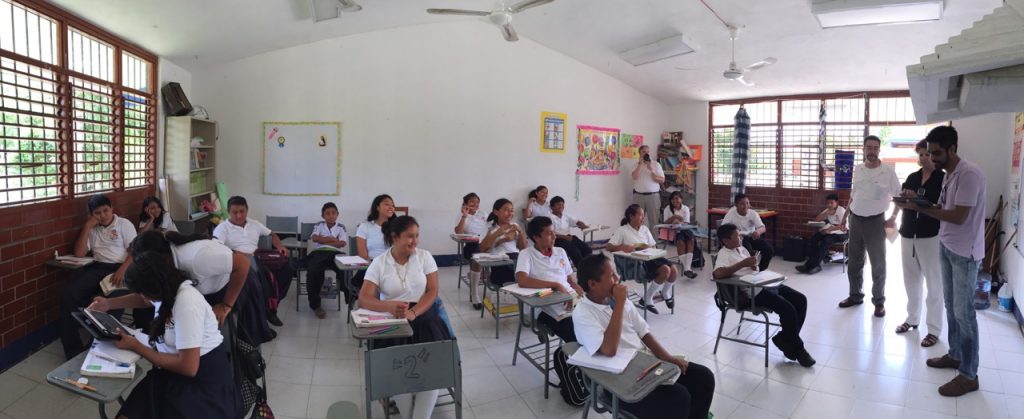
How do you bring the “Internet” to a remote village in Mexico that doesn’t even have phone service? On June 20, 2016, we set out to understand that question. It was the day before the start of the OECD Ministerial Meeting on the Digital Economy in Cancun,and our ISOC Mexico Chapter arranged for this visit.
Our group was small: Internet Society President & CEO Kathy Brown, Regional Bureau Director for Latin America Sebastián Bellagamba, Alejandro Pisanty of the ISOC Mexico Chapter and myself.
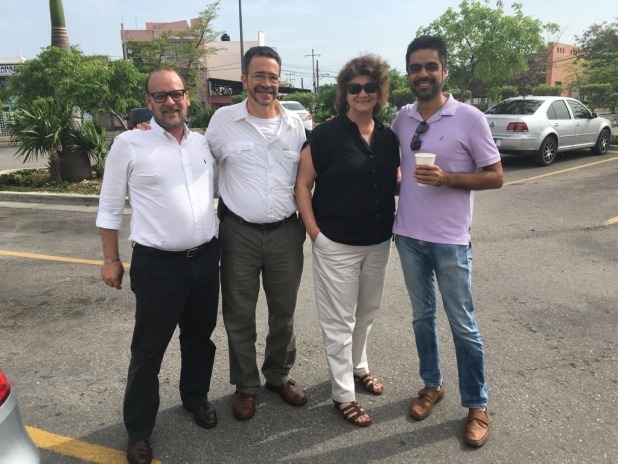
In a parking lot on the outskirt of Cancun we met Camilo Olea (pictured above on the right) and Pedro González. They are the founders of Kaanbal, a nonprofit organisation seeking to bring the Internet to remote regions of Mexico. They are also the recipients of an Internet Society “Beyond The Net” grant.
From there we drove about 60 kilometres west of Cancun to reach the small community of Agua Azul in the municipality of Lázaro Cardenas, Quintana Roo. It is about 450-500 people out in the jungle area of the Yucatan Peninsula.
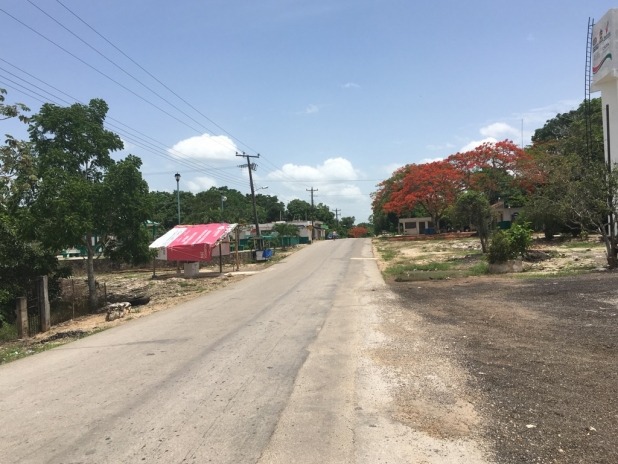
After parking and visiting a local community centre, we walked down the road to the school. Two of the three classrooms were in session, and we visited both. There are about 120 students between the middle school and high school. The students come not only from Agua Azul but also at least five other nearby communities.
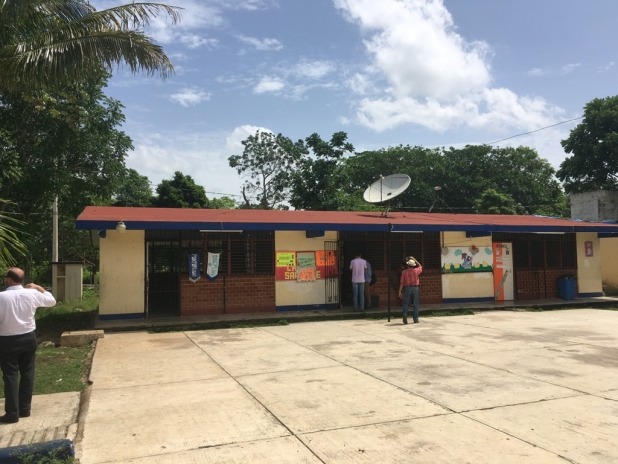
Despite the satellite dish shown on the roof of the school, there was no Internet access available. In fact, residents have to drive a good distance to a highway just to be able to send a text message.
The first step was for Pedro González to install a Raspberry Pi server configured with the RACHEL software distribution. The Pi connected to a WiFi access point. Instantly we were able to browse locally using the teacher’s laptop computer and the iPads we had brought with us.
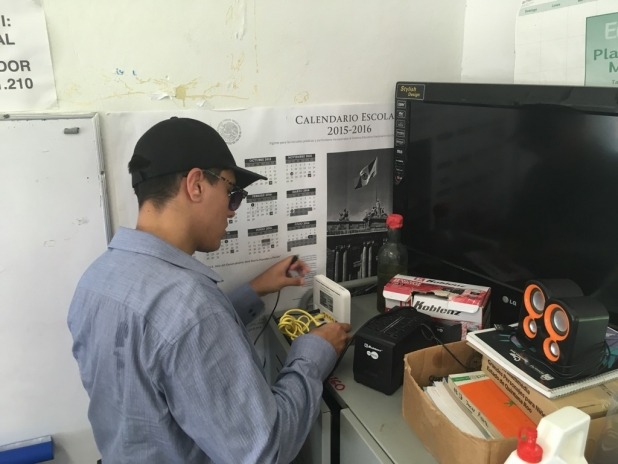
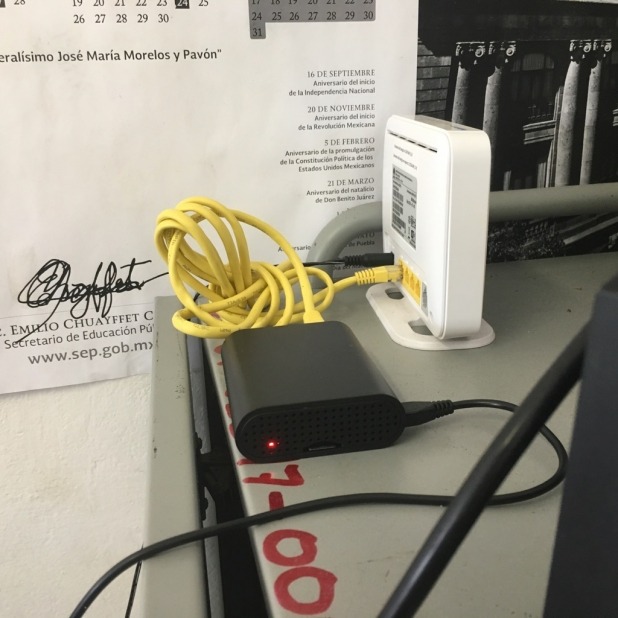
This, then, was the answer to that first question – how do you bring the “Internet” to a place where there is no phone service?
In truth, we were bringing “Internet resources” to the community. The content of Wikipedia, a set of Khan Academy courses, books, medical and health guides, videos about how to play instruments, and so much more. RACHEL, short for Remote Area Community Hotspot for Education and Learning, is a project of World Possible to bring educational content out to communities such as Agua Azul.
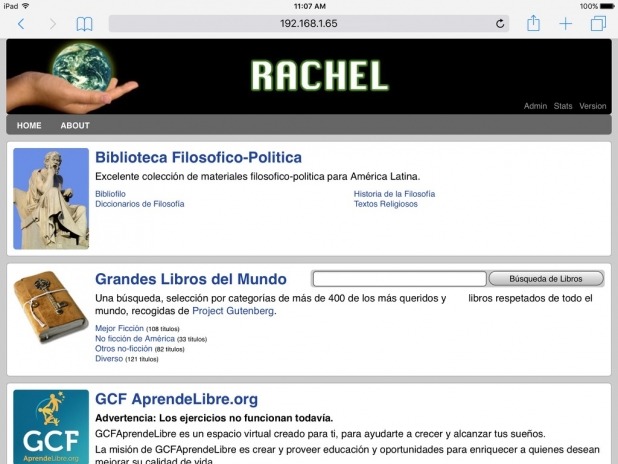
On a technical level, a RACHEL server is essentially a cached copy of a variety of websites. With storage space now being so cheap, a significant amount of web content can be shared. Obviously, you don’t have the real-time updates, but for educational material, this can be fine.
The RACHEL website lists the range of available content. Pedro and Camilo went through and identified the resources that they thought would be most helpful to the community. All of it is available in Spanish. They loaded those modules on the Pi server and brought it to the village.
It was powerful to watch the students as they interacted with sites such as Wikipedia that many of us simply take for granted.
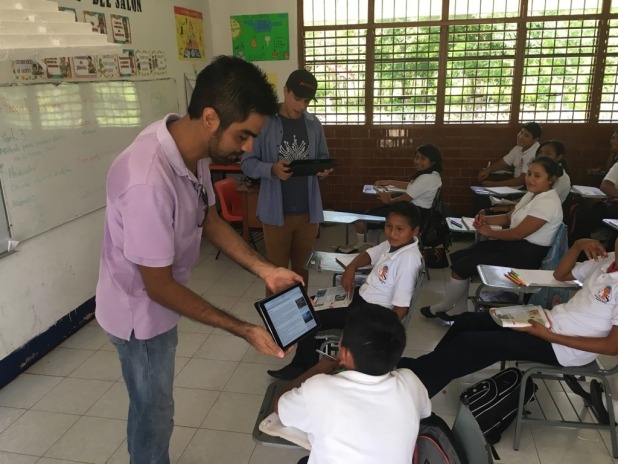
As an example, Kathy asked a few students to find information in Wikipedia about Virginia, where she lives and talked about where she was from. Next, she asked them to find and share with the rest of the class information about where they live in Mexico. Seeing their interest and enthusiasm made the trip worthwhile to me.
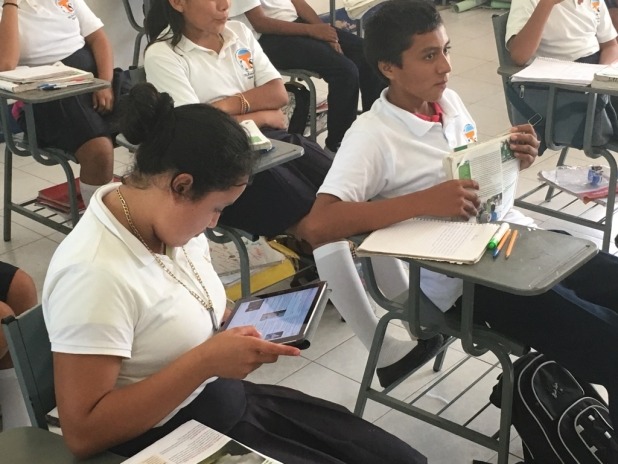
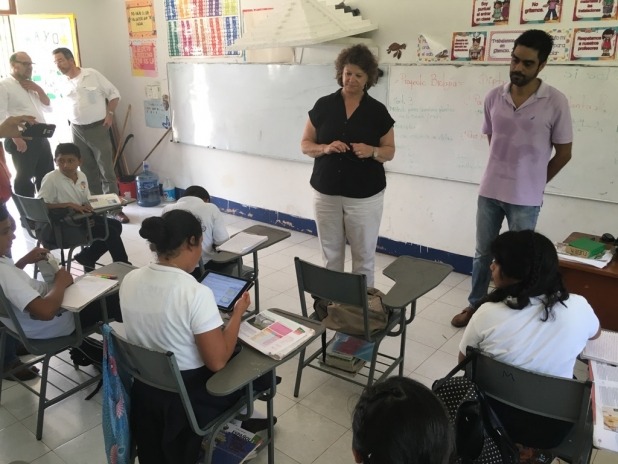
We didn’t stay too long. After all, school was in session! But we did get a good glimpse into the power of bringing resources from the Internet out to communities such as this.
Beyond the resources, I saw that this is preparing people for full Internet access. As these students tapped on the links and searched the available content, they were learning the skills that we use every day in the online world.
There was good news on that topic, too. It seems that a previous project to bring Internet access a few years earlier by a different group had left behind an installed radio tower at the school. Our team members from Kaanbal and ISOC Mexico recorded the necessary information about the tower location and height.
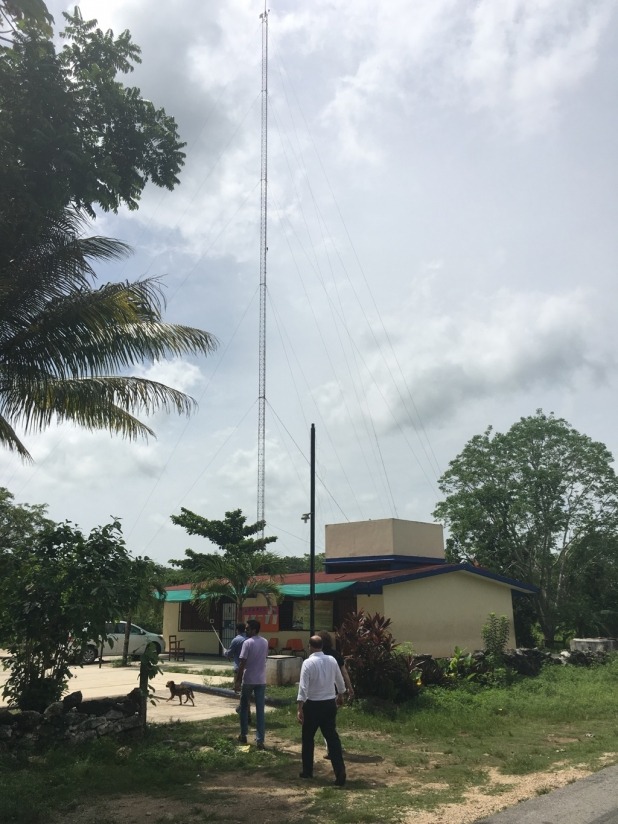
Their goal now is to find someone who can connect Agua Azul to the Internet using this tower. When they do, the students in the school will be ready!
Walking back to the cars, Pedro explained more about their efforts in Mexico. Already they’ve had interest from other communities. They are also working to tailor the software to the specific interests of the communities. For instance, Pedro and Camilo can collect feedback from teachers about what resources they need for upcoming lessons – and then bring updated software when they next visit.
As we drove back to Cancun for the start of the OECD Ministerial Meeting, I could only think of the subtitle of the event: “Innovation, Growth and Social Prosperity”.
Efforts like this are how we can bring about that growth and social prosperity. Material and content developed through the collaboration of many people across the open Internet. Software (RACHEL) and hardware (Raspberry Pi) created and developed by communities on the Internet. And then groups on the ground bringing that global information into local communities. Innovation and growth fueled by the remarkable creativity of collaboration.
THIS is how we bring the “Internet of Opportunity” to everyone!
More information:
UPDATE: Camilo Olea provided a Spanish translation of this blog post.
UPDATE: Pedro González provided this video that gives another view into the visit:
The post Connecting The Unconnected: The Story of a Visit to a School in Agua Azul, Mexico appeared first on Internet Society.













